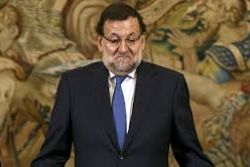- Business
- Childbirth & Education
- Legal Formalities
- Motoring
- Other
- Pensions & Benefits
- Property & Accommodation
- Taxes
- Airports and Airlines Spain
- Paramount Theme Park Murcia Spain
- Corvera International Airport Murcia Spain
- Join us for Tea on the Terrace
- When Expat Eyes Are Smiling
- Meet Wincham at The Homes, Gardens & Lifestyle Show, Calpe
- QROPS 2014
- Spain Increases IHT in Valencia & Murcia
- Removals to Spain v Exports from Spain
- The Charm of Seville
- Gibraltar Relations
- Retiro Park : Madrid
- Community Insurance in Spain
- Calendar Girls
- Considerations when Insuring your Boat in Spain
- QROPS – HMRC Introduces changes that create havoc in the market place
- QROPS – All Change From April 2012
- Liva & Laia : 15th November

With an election victory in his hands but without the weight for a strong majority, acting Spanish PM Mariano Rajoy is seeking support from new and traditional rivals in order to form a stable government.
In an unprecedented move that illustrates the new shift in the country’s politics, the Popular Party (PP) is turning for help to its traditional rival, the Socialist Party (PSOE), which came second in Sunday elections.
Rajoy will also speak with the head of Ciudadanos, which together with the leftist Podemos, was one of two emerging parties that performed strongly in their first foray into national politics.
The conservative leader is hoping that Socialist chief Pedro Sánchez and Ciudadanos head Albert Rivera will have enough “sense of state” to let him form a minority government with external support.
“Spaniards have expressed their will, and now it is up to us politicians to guarantee that this will is respected responsibly and with a sense of state,” he said, asking for “generosity and a broad vision that focuses on Spain’s best interest.”
The meetings will take place before January 13, when the new deputies get sworn in and a new speaker of the house is designated. At that point, legal procedures mandate that the king must officially put forward a prime ministerial nominee, and that the nomination will be voted on in Congress. But so far, Rajoy lacks enough support to get himself reinstated.
Even though Ciudadanos has said it will abstain at the investiture vote, the Socialists on Monday declared that they would vote “no” to a second Rajoy administration because “Spaniards want change.”
This opens up the possibility of finding a replacement for Rajoy within the PP who might attract more sympathies. The PP chief in the Extremadura region, José Antonio Monago, has already said that Rajoy is not indispensable, “as nobody ever is in life.”
If no congressional consensus is reached on a new prime minister, Spain could face new elections in early 2016.
Rajoy, whose party won 123 seats representing 28.72% of votes, insists that the PP should rightfully head the new government. He is warning against a hypothetical alliance of “the losers of the left,” which could collectively add more seats if the PSOE (90), the anti-austerity Podemos (69), and several regional parties were to all band together.
The acting prime minister has been insisting on the need to present an image of stability to the world as Spain slowly emerges out of a crippling economic crisis. The European Commission has already expressed its desire to see “a stable government despite all the difficulties,” while the markets on Monday reacted nervously to an unprecedented political fragmentation in which four parties managed more than 40 seats.
Recommended Reading :
* Socialists confirm they will vote 'no' to Rajoy as PM
* Rajoy rejects notion of great coalition with Socialists










